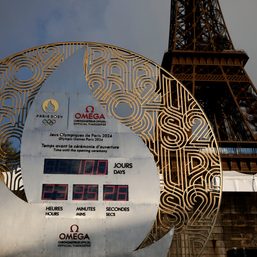SUMMARY
This is AI generated summarization, which may have errors. For context, always refer to the full article.

MANILA, Philippines – Majority of the University of the Philippines’ (UP) constituent units may have agreed to the academic calendar shift, but the move will only serve a minority.
This is the contention of two UP Diliman professors opposed to the shift during Rappler’s #TalkThursday last February 27 – also the canvassing day of the campus’ recently-concluded faculty referendum.
“In my honest assessment, we might lose that referendum… For the simple reason that a lot of our colleagues…[were] convinced by others that personal gains are better,” Victor Paz, professor from UP Diliman’s Archaeology Studies Program said.
Diliman is the only UP constituent unit that has not yet decided on the shift since it has not yet completed consultations. The 7 other constituent units of the UP System will adopt an August to May calendar starting academic year 2014-2015.
The administration’s main argument behind the shift is that, in the words of UP President Alfredo Pascual, it will “provide a clear signal that UP is now internationalizing and is getting ready to fully engage universities in our partner countries.”
Paz acknowledged that there is a need to internationalize as part of the UP charter, but there is also the rest of the mandate: to serve the needs of the Filipino nation.
“If our thinking is correct, then what will happen, it will be so lopsided for a minority concern of the university…for a small percentage of the constituency.”
UP foresees better student and faculty mobilitiy after they make the shift. For College of Arts and Letters professor Ramon Guillermo, however, the problem is not the small number of foreign students, but the small number of students from impoverished and poor backgrounds that are being served.
As it is, the UP is already a school for middle class and upper-middle class students, he said.
“We have to work towards a solution so that the university does not become needlessly an elitist institution. It must be an education institution which is accessible for the great majority of the Filipino population. And we have to adjust our policies of admissions in order to do this,” he said.
For him, the administration is taking the easier route toward internationalization: adjusting the calendar instead of improving facilities, increasing salaries of professors, and working on “more substantial reforms to improve [the] university’s capability to be international.”
Marketability
As the premier state university prepares for the pilot test of the shift next school year, Guillermo said other constituent units are already being asked to assess the marketability of their courses and subjects “to sell them on the ASEAN University Network (AUN).”
UP is among the 3 Philippine member-universities of the AUN, one of the sectoral bodies responsible for implementing higher education commitments in the ASEAN Socio-Cultural Community. (READ: 8 ways PH higher education can prepare for ASEAN 2015)
In UP Manila, Guillermo learned of the “first cut”: the first programs to be cut so units can realign and rationalize their funds or budget for competitive subjects and marketable programs.
What are the criteria for a program to be a “first cut” candidate? According to a document he acquired from Manila’s Office of the Vice Chancellor, these are programs with:
- Less than 20 new students per year
- Less than 10 master students per year
- Less than 5 PhD students per year
- Low graduation rates
- Poor performance in licensure exams
They will reduce extension courses, he said, and merge together related programs.
Paz said it makes more sense for private universities to go for marketability, but in a state university like UP, it is only a secondary concern. (READ: CHED: School calendar shift not for all)
Guillermo agreed. “It is important to internationalize, but the basis of this must be a strong national base…We still have to work on the main mandate of the University of the Philippines and then develop our capacity for deepening international linkages.”
Two other private universities have decided to shift their calendars – University of Santo Tomas in July 2014 and Ateneo de Manila University in 2015 – in response to the ASEAN integration and “the increasingly globalized world.”
The UP Board of Regents will evaluate the shift’s pilot implementation period after one year. Both Guillermo and Paz doubt anything will change in a year’s time, since their review has shown consistently that “it’s really a bad proposal.”
“I really doubt if, after one year, anything positive will come out of this exercise,” Guillermo said.
Watch Rappler’s #TalkThursday on the UP academic calendar shift here:
– Rappler.com
Add a comment
How does this make you feel?





There are no comments yet. Add your comment to start the conversation.